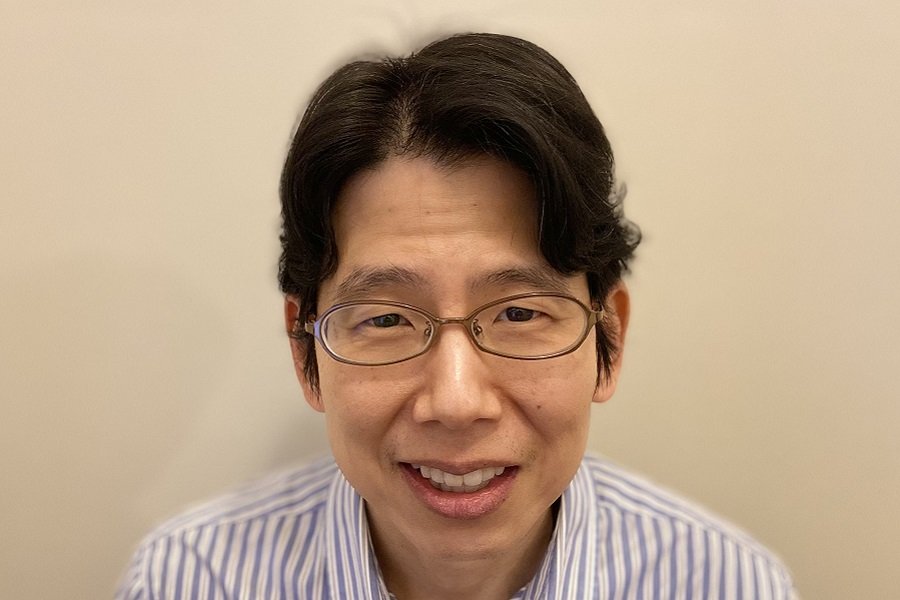Professor Chris Kim to lead $8M of federally funded projects on quantum-inspired computing

Distinguished McKnight University Professor Chris Kim has been awarded more than $8 million in federal funding for three key projects on quantum-inspired computing, a new computing paradigm that can solve the type of problems targeted by quantum computers but leveraging semiconductor chips built in today’s manufacturing facilities. Kim will lead projects funded by the DARPA QuICC program and the NSF ASCENT program. He will also collaborate with scientists from the University of Florida to incorporate the quantum-inspired computers into undergraduate courses under the NSF IUSE program.
DARPA QuICC Program Award
Quantum computing uses the laws of quantum mechanics to solve complex problems that classical computers struggle with. Quantum computers are typically based on the qubit (quantum bit), the basic unit of information similar to the bit in classical computing. However, even though quantum computers can tackle problems of increased complexity that might be beyond the capabilities of a classical computer, they pose hardware design challenges that deter the building of a large-scale quantum computer. DARPA aims to address the issue through the development of Quantum-inspired (QI) solvers using classical device technologies emulating qubit behavior.
Under DARPA’s Quantum-Inspired Classical Computing (QuICC) program QI solvers will address Department of Defense (DOD) optimization problems and “demonstrate the feasibility of reducing the required computational energy by at least two orders of magnitude over existing techniques.” QI solvers are especially important to the DOD; solving complex optimization problems are critical to the success of mission capabilities. Currently, key problems such as efficient ways to distribute supplies are solved using conventional computing techniques, and the quality of these solutions are constrained by the limitations of available time and energy.
Under the $6.8 million DARPA QuICC program award, Kim’s research team will leverage his work on CMOS coupled oscillator based Quadratic Unconstrained Binary Optimization (QUBO) accelerator designs. The project is titled “COBI: CMOS Oscillator Based Ising Computers" and will develop commercially-viable ultra-low energy QI solvers that are expected to meet DARPA’s QuICC program goals. To achieve unprecedented density, energy efficiency, speed, reliability, manufacturability, and economies of scale, the proposed QI solvers will be built with standard CMOS technology widely available through major foundries. Sachin Sapatnekar who is a Distinguished McKnight University Professor and Robert and Marjorie Henle Chair will be a co-PI on the project.
NSF ASCENT Program Award
Under the 4-year $1.5 million NSF ASCENT program award titled “TUNA: TUnable randomness for NAtural computing,” Kim will lead the development of a quantum-inspired computer with tunable randomness which can help find the solution of hard optimization problems with greater speed and efficiency than conventional computers.
The Addressing Systems Challenges through Engineering Teams (ASCENT) program supports collaborative research “among the devices, circuits, algorithms, systems and networks research communities” that focuses on future semiconductor technology, and sustainable micro- and nano-electronics. Within the ASCENT program award, the research team led by Kim will address some of the issues that can pose challenges to the successful use and implementation of physics-based computers. The three key advances that can be expected through this project are nanoscale magnetic devices for tuning noise characteristics, simulation models and benchmarking tools to evaluate these nanomagnets, and the building of practical demonstrator systems in traditional and emerging semiconductor manufacturing platforms. The project will be supported by co-PIs
who are also ECE faculty, Professors Sachin Sapatnekar, Jian-Ping Wang (Distinguished McKnight University Professor and Robert F. Hartmann Chair), and Ulya Karpuzcu.
Commenting on the DARPA and NSF ASCENT grants Kim says, “The most exciting aspect of these projects is that we are building real quantum-inspired computer chips through commercial foundries that leverage nature to solve real-world optimization problems. Real chips with hundreds of coupled oscillators solving the traveling salesman problem, for example.”
NSF IUSE Program Award
Under the 5-year $2 million NSF IUSE award, Kim and Karpuzcu will be collaborating with faculty from the University of Florida on the project titled “Innovating Quantum-Inspired Learning for Undergraduates in Research and Engineering.” The University of Minnesota team’s share of the project is $750,000.
The NSF’s Improving Undergraduate STEM Education: Education and Human Resources (IUSE: EHR) program supports projects that focus on improving STEM teaching and learning for undergraduate students, examining successful practices, and supporting the adoption of these successful practices. Focused on developing a quantum/quantum-inspired information science and technology curriculum for undergraduate students, the scope of the project includes software and hardware aspects, and related engineering and science disciplines. Some of the key tasks include an examination of key technical and cognitive barriers to engaging in quantum/quantum-inspired science and engineering education, and the creation of educational and experiential tools based on the quantum-inspired chips from Kim’s group that can be integrated into the undergraduate engineering curriculum.